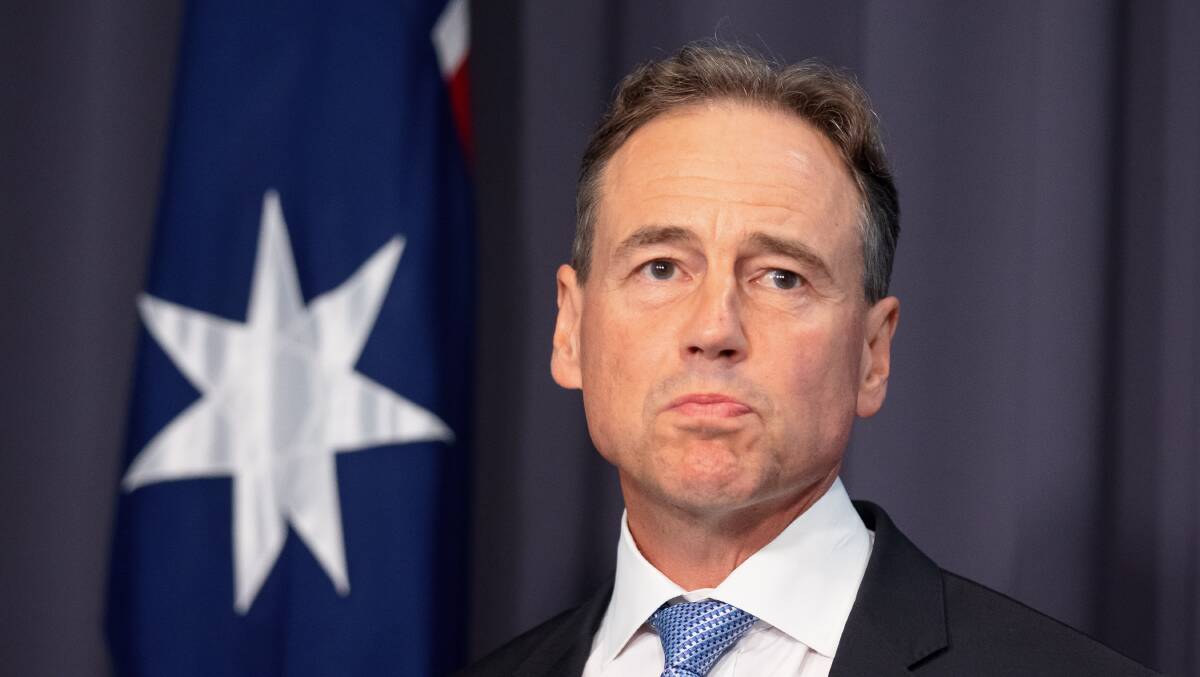At this early stage the federal government's "stay calm and carry on" messaging around the arrival in Australia of the newly identified Omicron variant makes a lot of sense.
Subscribe now for unlimited access.
$0/
(min cost $0)
or signup to continue reading
The Prime Minister, the Health Minister and the Chief Medical Officer have all made the point South Africa got the news of the new variant out early, that only three cases had been detected in overseas arrivals by Monday afternoon, and there were hopeful signs the new variant of concern was less deadly than Delta.
It might even be a good thing if, as a result of a higher transmission rate, a less lethal variant replaced Delta as the dominant strain of COVID-19 around the world.
READ MORE:
While this remains to be seen, given the dearth of information about Omicron at this point, there is as yet no real evidence that it will be the game changer Delta was. And, most importantly, Australia is in a very different position to where it was when coronavirus first came here in February 2020 and when Delta arrived in June.
Australia's double vaccination rate is now approaching 90 per cent, state health systems have coped with the influx of Delta cases significantly better than many pundits had predicted, and more than 450,000 of the 500,000 people eligible for their booster shot have already received it.
This means that if ATAGI, which has been requested to review the booster program by Mr Hunt in the context of Omicron, does recommend bringing forward doses for other cohorts Australia is well placed to do that. Health authorities won't be playing catch-up with the members of the first group.
Australia is in a very different position to where we were when coronavirus arrived in February, 2020.
By acting swiftly in stopping flights from the affected southern African nations, requiring recent arrivals from there to quarantine for 14 days, and imposing a 72 hour quarantine requirement with mandatory testing on all recent and new arrivals from elsewhere the health establishment is endeavouring to buy sufficient time to answer some very important questions.
The most urgent of these are how potentially lethal is Omicron? How virulent is it? And, is it more resistant to existing vaccines than previous variants?
With National Cabinet expected to meet on Tuesday the answers to these questions will play an important role in determining if the opening up of Australia's international borders goes ahead as planned on Wednesday.
The emergence of this latest variant may also prove of long term benefit in that it is a reminder that while Australia has been moving in the right direction on case numbers, deaths, and vaccinations, the battle with COVID-19 is not over and that complacency can be deadly.

It might even prompt some of the participants in the recent spate of freedom marches - which have now been linked to Delta outbreaks in Victoria - to reconsider their position and to get the jab.
And, most importantly, the emergence of this 13th variant of concern, underscores the World Health Organisation's ongoing calls for rich western nations to do more to vaccinate the developing world.
That is the only way to prevent the emergence of new, and potentially much deadlier, variants in third world populations where the virus is able to spread like wildfire.
The Reverend Tim Costello put it well when he said: "We say to the government, this doesn't end for us in Australia until it ends for all of us [around the world]".
"The comfort that as a nation continent we can shut our borders isn't a real comfort. It will get here, and therefore we've been warned yet again."
Nobody matters unless everybody matters.

